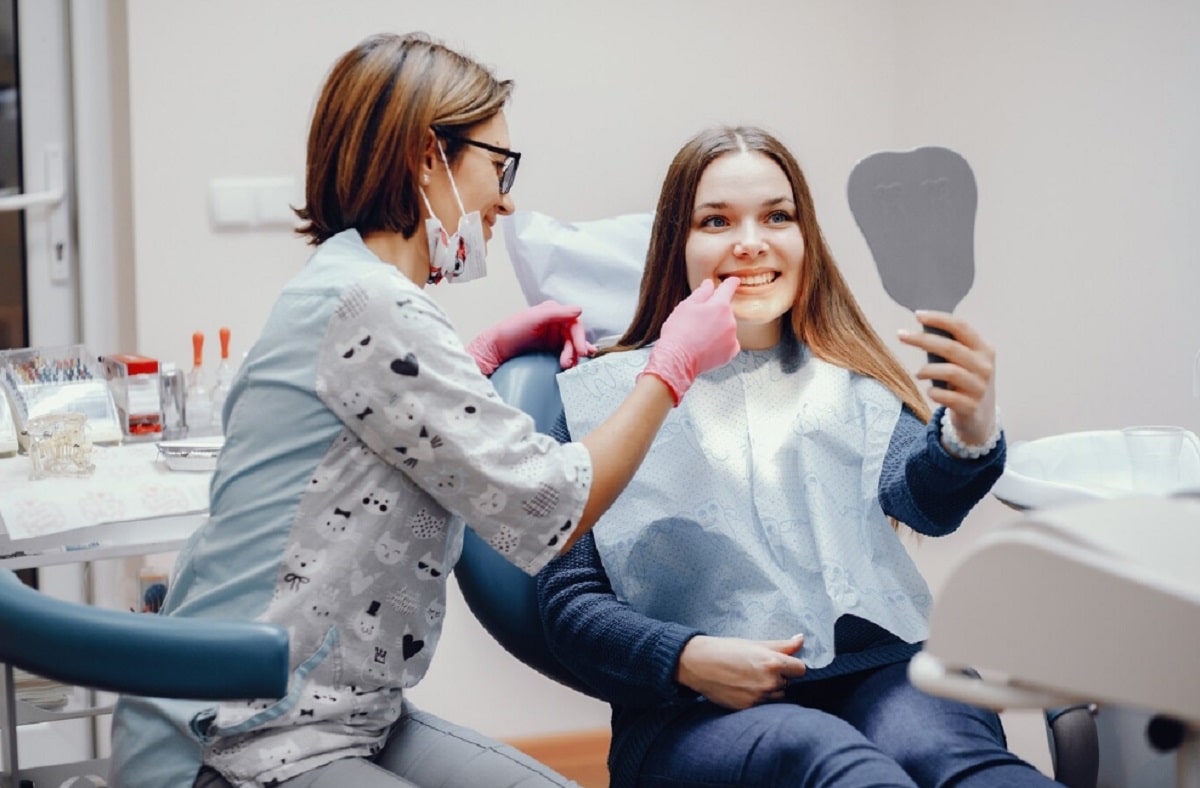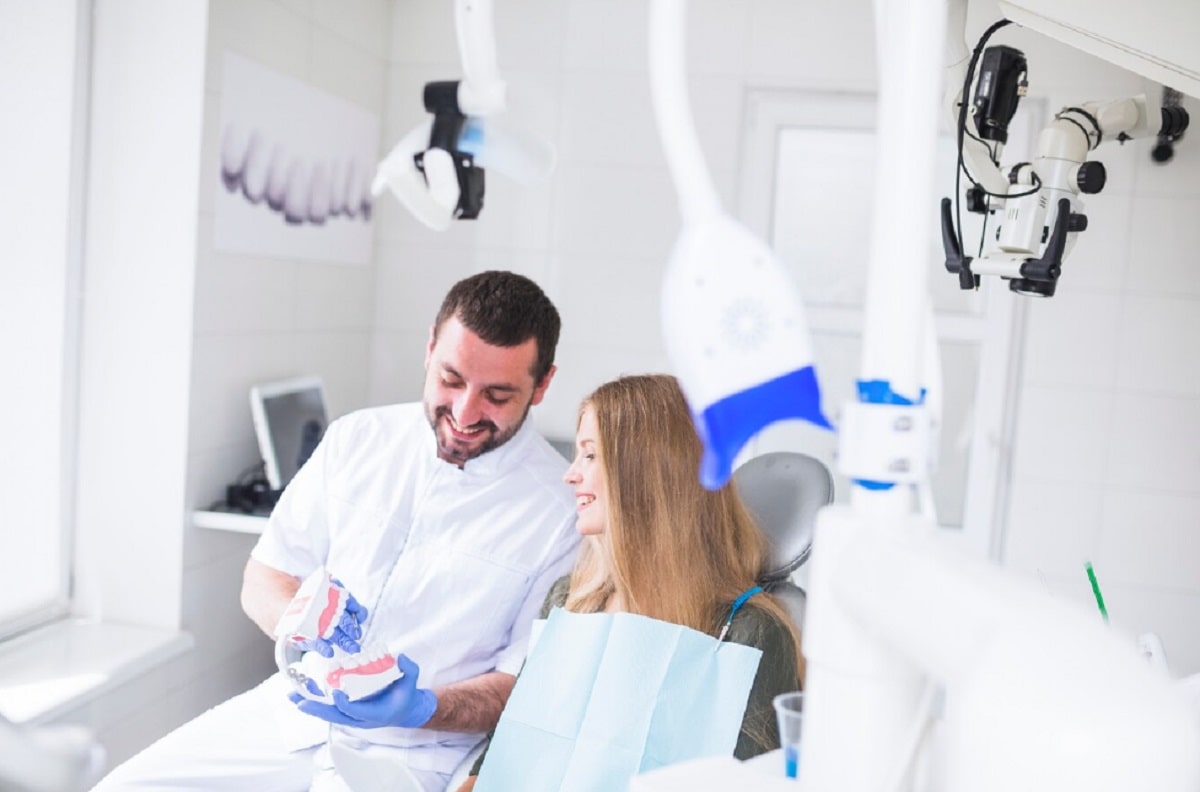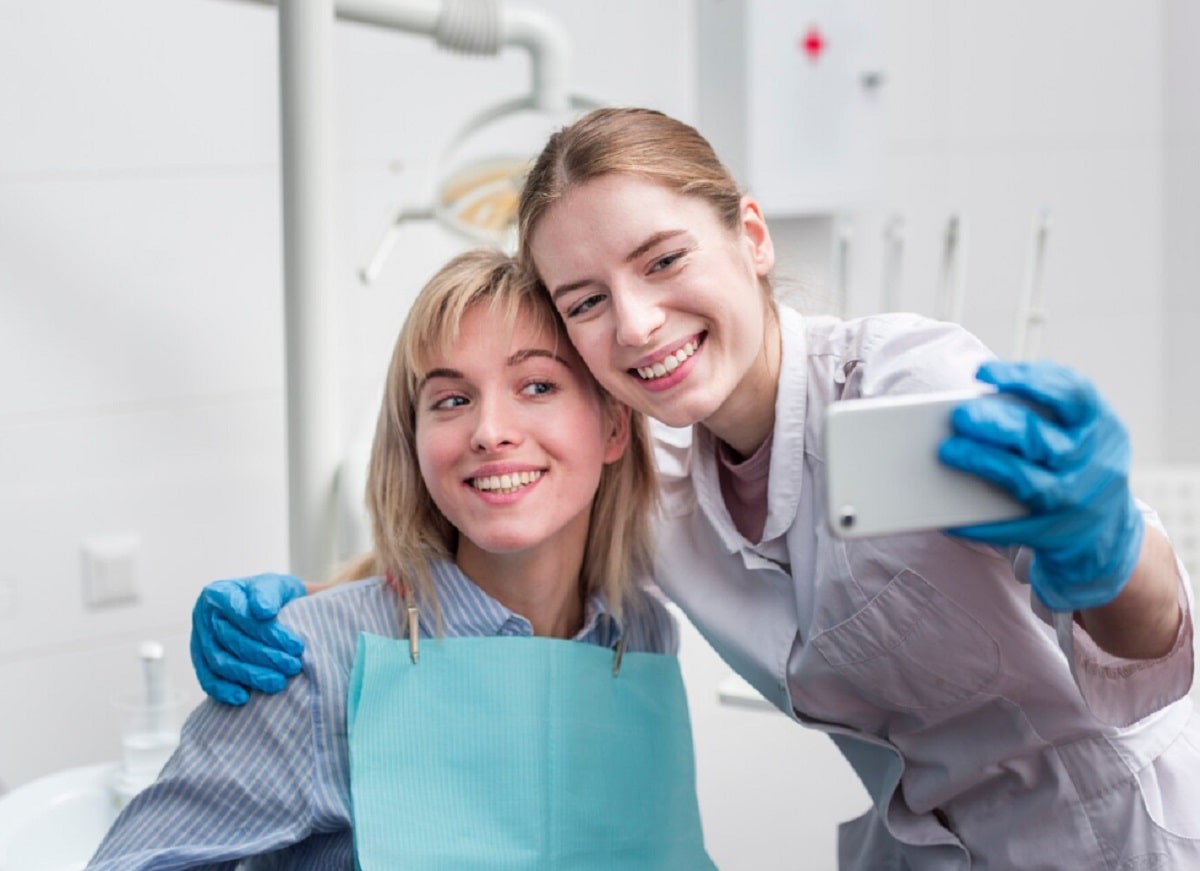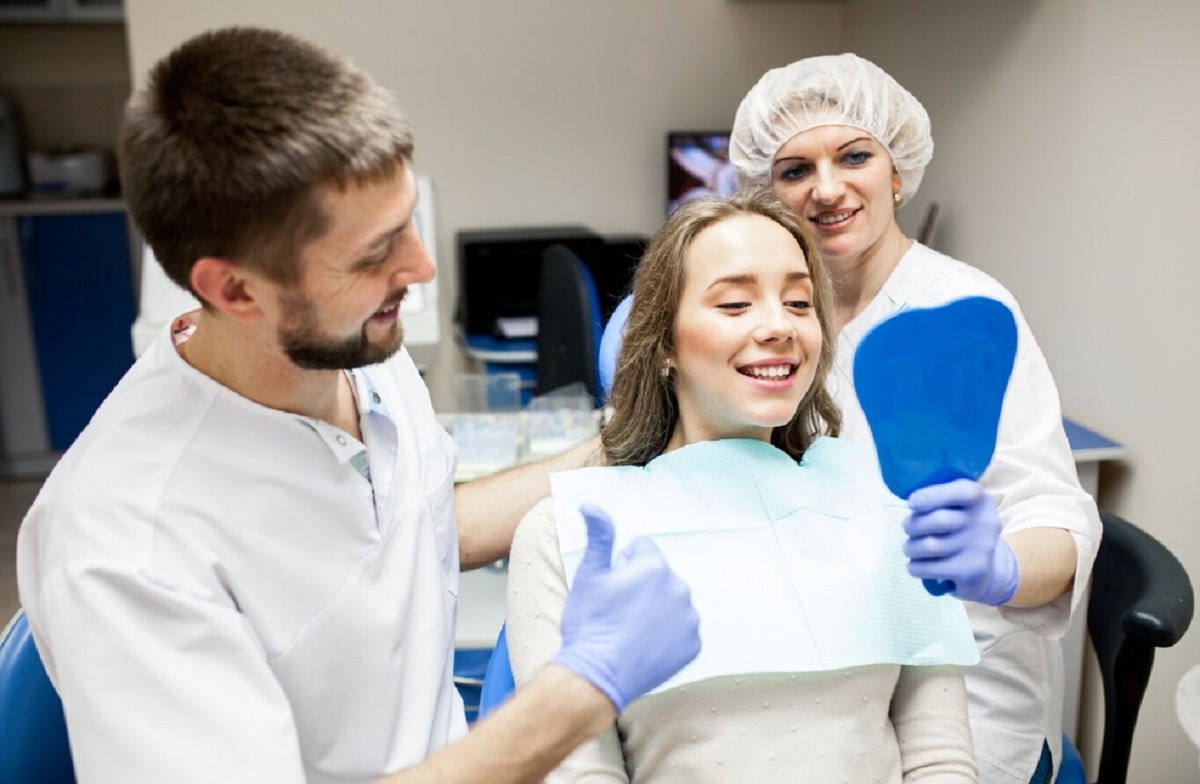Oral and dental health in teenagers is important for maintaining an aesthetic, healthy, and functional oral structure throughout life. Especially taking preventive measures at an early age can result in long-term healthy smiles. Therefore, it is essential to follow certain rules for oral and dental health during adolescence.
Oral and dental health information should be obtained directly from experts in the field. During this stage, when general problems begin to emerge, some treatments are applied for teenagers’ oral and dental health. The aim of each treatment is to create a functional and healthy oral structure. Dr. Yasin Akgül also plans and conducts orthodontic treatments for adolescents at this point.
What is Oral and Dental Health in Teenagers?
Oral and dental health, in its most general definition, refers to the functional ability of the mouth, tongue, teeth, and cheeks. It describes a situation where there is no discomfort, pain, or aesthetic issues, and the individual is expected to live comfortably without complaints.
As age progresses, oral and dental health in teenagers will deteriorate. Especially due to dietary habits, problems may arise. As a result of such situations, the desired healthy condition deteriorates, and the individual needs to consult a specialist for oral and dental health in teenagers.
Dr. Yasin Akgül continues to offer special treatments for teenagers. Orthodontic treatments are particularly effective for young individuals. It is known that people in adolescence pay attention to their aesthetic appearance. As such, applications for teen orthodontic treatments are increasing. You can also make an appointment for orthodontic treatments and more.

Brief Information on What Should Be Done for Oral and Dental Health in Teenagers
During adolescence, the body undergoes significant change and development. In this period, teenagers consume a lot of energy. To achieve healthy development, an aesthetic appearance, and the required energy, teenagers should pay attention to factors that support oral and dental health. These include;
| Nutrition |
| Education and Entertainment |
| Tooth Brushing Habit |
| Hormonal Factors |
| Wisdom Teeth |
| Sports |
| Bad Habits |
| Accessory Use |
| Various Health Issues |
| Routine Dentist Checkups |
| Tongue and Oral Hygiene |
| Genetic Predispositions |
1 – Nutrition
Teenagers often neglect healthy and balanced nutrition. Since they spend most of their time outside, they tend to eat out. The food they consume is generally unhealthy fast food, which is quick and easy to eat.
Most teenagers do not have routine habits such as maintaining a regular sleep schedule or eating healthy without skipping meals. In addition to this unbalanced lifestyle, they may also turn to bad habits. Unhealthy eating and bad habits like smoking lead to unhealthy growth in teenagers. This unhealthy lifestyle invites dental and gum diseases.
The body is a whole, and health issues in one area can affect other areas. Unhealthy eating leads to poor oral and dental health. For teen oral and dental health, nutrition should be prioritized. Acidic and fast food should be avoided, and if consumed, proper hygiene must be maintained.
2 – Education and Entertainment
Most teenagers spend the majority of their time at school. Outside of school, they participate in various sports or art activities and engage in social gatherings or events. While pursuing education and entertainment activities, they may neglect the most important part of personal care, which is oral and dental health.
Nowadays, the heavy influence of the internet also plays a role. Especially before bedtime, time spent on the internet can lead to skipping teeth brushing, which results in exposing the teeth to bacteria throughout the night. This situation poses a significant risk to teen oral and dental health.
Just as with children’s oral and dental health, teenagers should also not neglect hygiene, even in such cases. It is crucial to brush their teeth at the end of the day, even in educational or entertainment situations. If possible, brushing their teeth in schools or shared spaces is also necessary.
3 – Tooth Brushing Habit
The main reason for dental health problems during adolescence is the lack of an established tooth brushing habit. Many teenagers neglect brushing their teeth due to various excuses, leading to the development of cavities and gum diseases. Dental hygiene should become a subconscious routine starting from infancy, with cleaning habits deeply ingrained. Ideally, teeth should be brushed for 2-3 minutes at least twice a day.
Moreover, it is also important to pay attention to toothbrush selection for teen oral and dental health. Regular brushing alone may not be sufficient. The brushes should neither be too hard nor too soft. Additionally, using an interdental brush to prevent food accumulation between teeth can be a good choice.

4 – Hormonal Factors
During adolescence, the body undergoes significant changes and developments, leading to intense hormonal fluctuations. There are sudden increases in hormones. As a result, dental and gum issues can be more pronounced due to hormonal imbalances.
This condition, often seen in women, is also common in men. With these hormonal changes, it is essential to pay more attention to oral and dental health. Patients do not need to use hormone-supporting products or medications. Simply focusing more on oral hygiene will be sufficient.
5 – Wisdom Teeth
The wisdom teeth, located at the very back of the jaw, are also called third molars. They generally appear between the ages of 17 and 25, but sometimes they remain impacted and do not erupt until later years. The eruption of these teeth usually takes time and can be painful. Pain relievers or gargling with warm salt water can help alleviate the pain.
Although not everyone has issues with them, during the period when wisdom teeth are erupting, symptoms such as swelling, sensitivity, difficulty opening the mouth, bad breath, unpleasant taste, and pain are often observed. Since these teeth are located at the end of the dental arch, it is challenging to maintain hygiene. When not properly cleaned, wisdom teeth can decay rapidly. They can also negatively affect the neighboring molar by spreading decay-causing bacteria.
During the eruption of wisdom teeth, they can apply pressure to adjacent teeth, causing pain. The pressure and pushing force can lead to the shifting of other teeth, resulting in orthodontic problems. Orthodontic treatment may be required as part of teen oral and dental health. Additionally, the removal or regular checkups of these teeth become essential.
6 – Sports
With their high energy levels, teenagers are often involved in various sports activities. While engaging in sports, they should take precautions based on the type of sport they participate in to prevent potential health issues. A blow to the mouth during a match could lead to dental fractures, jaw dislocation, or other mouth, tooth, and jaw injuries. For instance, a teenager participating in boxing or other contact sports should use a mouthguard during training.
It’s not just in combat sports—any sport involving movement is important for teen oral and dental health. Avoiding sports is not the solution; instead, precautions should be taken according to the sport. For example, if you are undergoing orthodontic treatment and also play sports, you might consider using Invisalign clear aligners instead of metal braces.
7 – Bad Habits
The main reason teenagers start smoking is due to admiration. They often admire and emulate individuals in social or aspirational roles. Social life is a crucial factor during adolescence. The need to be accepted by a group and the sense of belonging are very strong. If there is a dominant character in the group who smokes, the teenager may unknowingly start smoking out of admiration or a desire to fit in.
Smoking is extremely harmful to oral and dental health. Cultural habits ingrained in daily nutrition are also a threat to oral and dental health. Overconsumption of caffeinated beverages like tea and coffee, and acidic drinks like soda, are detrimental to the teeth. The excessive intake of sugary foods accelerates tooth decay.
Avoiding smoking, alcohol, and sugary foods is crucial for teen oral and dental health. If consumption does occur, regular dental check-ups should be ensured. This way, preventive treatments can be administered, and the oral structure of the patient can be preserved within the scope of teen oral and dental health.
8 – Accessories
As a reflection of the period they are going through, teenagers often try different methods to stand out and express their individuality. They make various modifications to their bodies to express themselves or make a statement through objects.
They use accessories like earrings or piercings in the mouth, lips, or tongue. Piercing the tongue can lead to infections. Jewelry or piercings placed on the tongue can hit the teeth, causing cavities, damaging tooth enamel, and even creating pits. Similarly, piercings on the lips can damage the tooth surfaces, potentially inviting infections.

9 – Various Health Issues
Breathing through the mouth due to ear, nose, and throat disorders, especially when sleeping with the mouth open, is highly damaging to dental health. Upper jaw constriction can develop in individuals who breathe through their mouths due to nasal congestion or issues like enlarged adenoids. This can negatively impact oral development in a complex manner.
At night, along with the reduction of saliva production, breathing through the mouth can cause the mouth to dry out, leaving it defenseless against bacteria. Considering all these factors, oral and dental health should be addressed as a whole. It is important to treat other health issues (especially ENT problems) without underestimating them to maintain teen oral and dental health.
10 – Routine Dental Check-ups
Teen oral and dental health is crucial not only for teens but also for children and adults. Although visiting the dentist only after problems arise is common in our country, the issue is not limited to this. Teens should visit the dentist for regular check-ups before encountering any issues, in order to be proactive and preventive.
11 – Tongue and Oral Hygiene
Even though it has been previously mentioned, brushing the teeth alone is not enough for teen oral and dental health. The tongue and the inner cheeks must also be cleaned. Bacteria can accumulate in these areas due to saliva. Special tongue brushes can be used, and mouth rinses can elevate oral hygiene to its highest level.
12 – Genetic Predispositions | Teen Oral and Dental Health
If there is a history of oral, dental, or jaw problems in the family, attention must be paid to the issue. Being informed about common teen oral and dental health problems is also effective in this regard. This enables patients to undergo treatment quickly and resolve the issue in a timely manner.
What Can Teens Do for Oral and Dental Health?
Dental and gum problems are common among teenagers. To prevent these, teens need to re-evaluate their habits, focus on their diet, and maintain proper oral hygiene. People who eat healthily tend to have strong teeth and healthy gums. Teens should consume foods that support their development and provide enough energy.
Compared to adults, teenagers require more protein, vitamins, calcium, and minerals. Therefore, they should follow a calcium-rich diet and consume foods that contain fluoride and phosphorus. The teenage years are when individuals care the most about their physical appearance. Teens place great importance on how they are perceived by others. They spend time on personal care activities like hair and skin care, makeup, and fashion, but often neglect their oral and dental health. They usually realize the importance of this only when health problems arise.
Paying attention to oral hygiene and visiting a dentist once a year will be beneficial for maintaining oral and dental health without experiencing any health issues. Even individuals who brush their teeth regularly may still need procedures such as root canals or fillings. This is due to improper and ineffective brushing techniques.
Although teens try to pay attention to dental hygiene, their teeth often remain unhealthy because they do not know how to brush their teeth correctly. They should develop proper tooth-brushing habits to ensure complete care of their teeth. Additionally, they should protect their teeth during intense training, sports competitions, and other activities that may involve impacts by using mouthguards to prevent trauma.

Since wisdom teeth emerge later in life, their retention in the mouth depends on a dentist’s evaluation. If molars have been extracted early, wisdom teeth can be used as replacements. However, because they erupt late, there is often no space left in the jaw for them. As a result, wisdom teeth may be impacted or partially impacted. In such cases, it is necessary to assess whether they are pressing on neighboring teeth, what their condition is, whether they are impacted, and their position. If needed, the wisdom tooth may be extracted.
Partially erupted wisdom teeth can cause infections due to the presence of soft tissue around the gum. Food particles often get trapped in the tissue of partially impacted teeth, leading to infections. Infected wisdom teeth can prevent the mouth from closing properly and cause bad breath. Even if antibiotics are used to reduce swelling and pain, the problem is likely to recur.
Instead of relying on temporary solutions such as antibiotics out of fear of extraction, the wisdom tooth should be removed when necessary, based on the dentist’s recommendation. Impacted wisdom teeth can form cysts. Seeking help from a dentist about impacted teeth can help prevent future cysts or orthodontic problems.
Wisdom teeth that have not erupted properly, despite the jaw having fully developed, should be extracted. It is difficult to remove a decayed or partially broken wisdom tooth. Extracting them at a young age ensures a faster healing process, and the gums recover quickly. As age increases, treatment can become more difficult, and the healing process may take longer. Removing problematic, infected, or improperly erupted wisdom teeth will allow tissues to heal quickly, resolving the issue.
The Age Group Most Likely to Opt for Orthodontic Treatment: Teens
Orthodontic issues generally begin to show in childhood. Since appearance becomes important during adolescence, teenagers are the age group that most frequently visits an orthodontist. When they come to us, before starting orthodontic treatment, we first identify any dental health problems and create a plan to address those issues.
Afterward, we proceed with orthodontic treatment. From the positive feedback we receive, we see that after the treatment, teens feel confident, smile freely, and are happy with their appearance. We recommend starting orthodontic treatment during adolescence, as it tends to be easier, shorter, and more effective before the development period is over.
How Is Orthodontic Treatment Performed on Teens?
For teen orthodontic treatment, the patient’s oral and dental structure is first examined. Based on this, Dr. Yasin Akgül explains the orthodontic methods. The method is chosen based on the patient’s expectations, satisfaction, and financial situation, after which treatment begins. Orthodontic treatment that starts without delay is monitored through regular check-ups.
In general, it will not differ much from adult orthodontic treatment. However, teens undergo orthodontic treatment more frequently than adults. This is largely due to early intervention at a young age and the absence of complicating issues.
What Is the Cost of Treatments for Oral and Dental Health in Teens?
The cost of treatment for oral and dental health in teens in our country varies. The primary reason for this variability is the method used. For example, for some patients, fillings or root canal treatment within the scope of teen oral and dental health will be sufficient. However, other patients may need orthodontics or veneers.
At this point, it is difficult to determine an exact amount, such as ‘XX TL’, for oral and dental health treatments in teens. For an accurate cost estimate, the patient needs to be examined by a dentist. After the examination, the necessary procedures and their associated costs will be determined.
Frequently Asked Questions
When should braces be applied in teenagers?
Braces can typically be applied between the ages of 12 and 14 in teenagers. These years are when most of the teeth have shifted into place and the permanent teeth have been fully established. However, each individual has a different oral structure, and the dentist will determine the right time.
Is teeth whitening safe for teenagers?
Teeth whitening in teenagers should be approached with caution. It is generally not recommended before the age of 16, as the enamel may not have fully matured. Consulting with a dentist is the safest approach to teeth whitening.
How often should teenagers brush their teeth?
Teenagers are advised to brush their teeth at least twice a day, in the morning and before bed. Additionally, using dental floss and mouthwash after meals can help maintain oral health.
What causes gum bleeding in teenagers?
Gum bleeding in teenagers often indicates gum inflammation (gingivitis). It can result from irregular brushing or not using dental floss, leading to plaque buildup that causes gum inflammation. Regular dental care and dentist check-ups can help prevent this issue.
How can tooth decay be prevented in teenagers?
Regular tooth brushing, flossing, and avoiding sugary foods are the most effective ways to prevent tooth decay. Additionally, using fluoride toothpaste and visiting the dentist regularly can reduce the risk of cavities in teenagers.